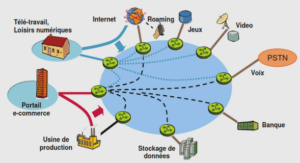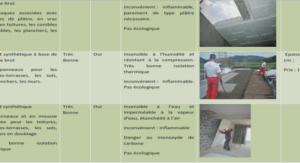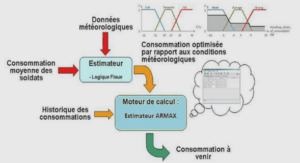Performing the operational management role
Preventing and managing disputes Key questions for the Authority
Experience shows that disputes are not uncommon in PPPs (as they are with other complex contracts between the public and private sectors). As a result, the Authority will need to prevent or limit the occurrence of disputes to the extent possible and manage them appropriately when they arise. The key questions the Authority needs to ask itself are as follows: − What are the main reasons for disputes to arise? − How to prevent disputes? − How to design an effective dispute resolution process? The inherent tension between “value” and “money” Although the parties involved in a PPP should have a common interest in the success of the project, they might have a different understanding of what constitutes success. There will invariably be an intrinsic tension between the “value” of the services provided to the Authority and the “profit” to be made by the private partner out of the contract. Because most PPPs extend over the long term, the partnership may at times be overtaken by events (e.g. changes in the project environment or in the project itself) and each party may be tempted to review its initial commitments to protect its own interests. This is when most disputes arise. Preventing disputes from arising As disputes often take considerable time and energy to resolve, they may jeopardise the success of the whole project. Therefore, wherever possible, each party should do its best, to prevent problems from developing into conflicts. To limit the risks of disputes, the parties to the PPP contract should endeavour in particular to: − ensure that the wording of the contract is as clear as possible (see the guidance given under Topic 3); and − develop and maintain a constructive partnership relationship (see the principles set out under Topic 2), by, for example, establishing interfaces at the various hierarchical levels to ensure that appropriate communication channels remain available beyond the day-to-day relationship. How to deal with a dispute without jeopardising the project If, despite the prevention measures above being adopted, disputes arise, the parties should tackle them in accordance with a clearly defined resolution process. This means that the PPP contract should include a formal dispute resolution process, which ideally would: − endeavour to achieve win-win solutions in the interest of the project; European PPP Expertise Centre Managing PPPs during their contract life March 2014 page 44 / 56 − be clear and simple: − to avoid further tension to arise from the interpretation of the dispute resolution procedure itself (e.g. the appointment of an external expert whose opinion will be respected by both parties); − to avoid unnecessary expense, either direct (i.e. cost of the resolution process itself) or indirect (i.e. costs resulting from the persistence of the problem); − include: − a range of reconciliation procedures, which are proportionate to the seriousness of the dispute; − a hierarchy of resolution procedures (i.e. from an internal committee for dialogue between the parties, to an external expert’s opinion or mediation and, finally, to arbitration or court proceedings) and mechanisms (i.e. from adjustment of the Authority payments or tariffs, to relaxation of the performance requirements and termination); − endeavour to avoid standstill situations. In particular, it should: − ensure that the parties continue to meet their contract obligations during the dispute resolution procedure, without prejudice to their being compensated subsequently depending on the final decision regarding the dispute; and − include fixed time limits within which the parties will be obliged to consult each other and encouraged to find solutions. Given the cost of a long-drawn-out dispute resolution procedure and the fact that the ultimate way to end a dispute is to terminate the contract, the private partner’s equity investors and lenders will pay close attention to the design of the dispute resolution process. If this issue is not properly addressed, it may even jeopardise the “bankability” of the contract
Undertaking periodic reviews Key questions for the Authority
Given the long-term nature of most PPPs, the Authority should carry out project and contract reviews on a periodic basis. In doing so, the Authority should focus on a number of questions: − What is the rationale for undertaking periodic reviews? − What should be the scope of the reviews and what methodology should be used? − How to identify and benefit from potential savings? − What issues are commonly neglected in reviews? The need for a periodic project “health check” The objectives of periodic reviews are twofold: − They are a way of monitoring the project in order to assess its overall fitness for purpose and identify how it can be adapted to a changing environment (e.g. change in the requirements of the Authority, change in the project’s economic or legal frameworks); and − They are a way of checking whether or not the private partner is actually delivering the required services and of evaluating its efficiency in doing so. Often, reviews will help maintain and/or improve the value for money of the PPP project. The timing and scope of the reviews should be considered at the time of contract drafting. Typically, a full technical, financial and legal review should take place every five years. As mentioned under Topic 3, these reviews may be used to introduce some flexibility, where necessary, within the contract. They may be supplemented or replaced by reviews scheduled on an ad hoc basis to identify, for example, causes of persistent underperformance in the service provision or as a result of doubts about the private partner’s good faith in reporting accurately the technical and financial status of the project. Depending on its particular objectives, a review may be broad in scope and give a full picture of the contract’s overall performance. Alternatively, it may be focused on a very specific technical, legal or financial issue (e.g. is the partner actually meeting the maintenance plan agreed between the parties?). Reviews may be carried out internally by the operational management team itself, but because they may entail a heavy workload, they will often be outsourced to external consultants. In addition to their input in terms of extra human resources, consultants will typically have experience with a large number of projects, and may therefore add value in the identification of underperformance/wrong-doings and be able to benchmark the project against their own database. Finally, it is worth bearing in mind that reviews often lead to contract amendments (see Topic 9 below). European PPP Expertise Centre Managing PPPs during their contract life . Looking for opportunities to make savings8 During reviews, any room for potential savings for the Authority should be identified. Savings may arise from: − Improvements in the private partner’s efficiency in providing the service, such as deploying fewer resources to achieve the same output by increasing monitoring, reengineering service delivery and motivating employees; − Changes in the Authority’s requirements, such as adjusting initially overestimated performance levels, changes in the scope of the services, greater flexibility for the private partner to develop complementary business activities using the facility; and − Changes in the project environment, such as changes in law which may be beneficial to the project (e.g. increase in statutory working hours), lowering the cost of financing, using new technologies (e.g. IT monitoring and management of energy consumption in an old building). Subject to the wording of the contract, the Authority may be fully entitled to ask for savings to be shared where they result from the last two categories referred to above. If savings from an increase in the private partner’s efficiency exceed a certain level, the Authority may also seek to claim part of the additional profit. However, in looking for savings, the Authority must be careful not to take measures that appear to save costs in the short term but will be detrimental to the value for money over the long run (e.g. cuts in the maintenance programme, aggressive gain-sharing that would reduce the private partner’s incentives to innovate). With regard to changes in the project environment, the contract may also provide for mechanisms9 such as: − “market testing”, where the private partner is obliged to periodically retender certain services to test their value for money on the market; and − “benchmarking”, a process whereby the parties to the contract compare the cost and performance of the services delivered by the private partner with a sample of other comparable service providers. Such mechanisms are suitable only in countries where the services market is already quite mature and offers a range of comparison sources. Identifying and managing refinancing opportunities During the life of the contract, the parties may be forced or consider it appropriate to review the financing structure put in place at financial close. Typically this may arise (i) where the parties have used financing instruments with maturities that are significantly shorter than the duration of the contract (e.g. use of 8 For further information, see HM Treasury, “Making savings in operational PFI contracts”, July 2011. 9 For further information see HM Treasury, “Operational Taskforce Note 1: Benchmarking and market testing guidance”, October 2006. European PPP Expertise Centre Managing PPPs during their contract life March 2014 page 47 / 56 “mini-perms” which must be refinanced during the service phase) or (ii) where the general market conditions have changed and become more attractive (e.g. interest rates have fallen and the hedging arrangements do not preclude the private partner from benefiting from this). A well-drafted contract will incentivise the private partner to seek out refinancing opportunities without having to be called upon to do so by the Authority. However, it may be good practice to use the periodic reviews to check on a regular basis the opportunities available on the financial markets. When negotiating the provisions on refinancing, the Authority should: − insist on being informed of any opportunity shortly after it has been identified by the private partner; − make sure that the private partner will submit a formal request and that the Authority’s authorisation will have to be obtained prior to taking any action; and − define the precise basis for calculating the refinancing gain to be shared: how to calculate the refinancing gain (e.g. choice of the benchmark indicator), how to share the gain (i.e. what percentage) and how the gain should be “paid” (e.g. as a cash sum, in the form of reduction in the Authority payments). Finally, it is important to bear in mind that refinancing may apply not only to the debt but also to the equity component of the financing structure (e.g. increase the debt to equity gearing).





